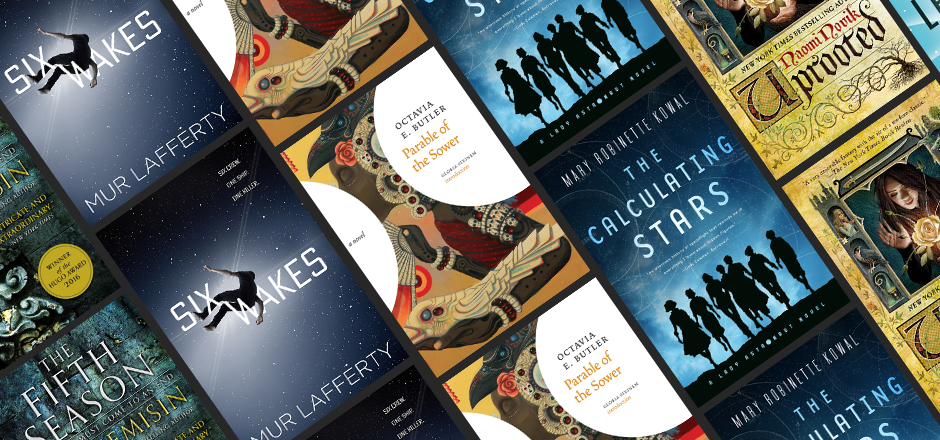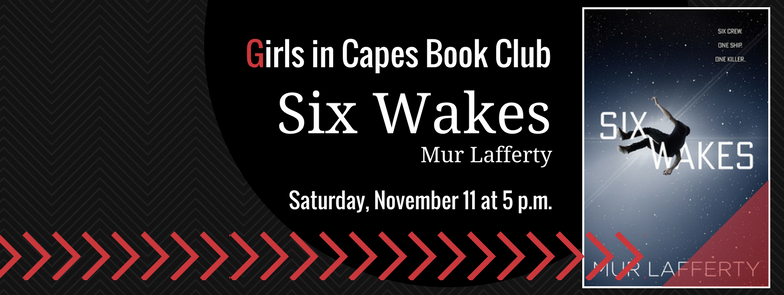Please welcome our guest writer, Michael Martinez!
While I’m truly honored to have been asked to write about female characters here on Girls in Capes, I’ll be the first to say up front that I don’t have all the answers. What works for me as a writer may not work for you. What I feel works in my book, The Daedalus Incident, may not work for you as a reader.
With that said, I’ll forge ahead!
 One of the two primary protagonists of The Daedalus Incident is a woman of color – a British-Indian astronaut by the name of Shaila Jain. Her inclusion was a very conscious decision on my part; it never occurred to me not to make her a woman of color. There were a couple of reasons for that.
One of the two primary protagonists of The Daedalus Incident is a woman of color – a British-Indian astronaut by the name of Shaila Jain. Her inclusion was a very conscious decision on my part; it never occurred to me not to make her a woman of color. There were a couple of reasons for that.
One, Shaila is an astronaut stationed at a Martian mining colony in the year 2132. It is my fervent hope that, a hundred-plus years from now, that we would not only have a mining colony on Mars, but that a woman of color would be stationed there and, frankly, have nobody question her presence because of her background or gender. Indeed, she’s second in command, and her boss, a hard-nosed U.S. Air Force colonel, is also a woman. Maybe it’s the Trek fan in me, but I really want to see a future where background and gender are secondary to ability.
Two, the 2132 setting is just one of two in the book. The other is a historical fantasy in 1779 in which sailing ships ply the Void between worlds. Think Master and Commander in space. Of course, the Napoleonic Era naval literature of the time is very much male-centric; there are few, if any, notable women in those traditional works. I did what I felt I could, given the history and the setting, to bring women into the mix there. But Jain and her crew most certainly serve as a counterpoint to the men of HMS Daedalus.
It’s not a major spoiler to say that these two settings eventually come together, and dealing with the gender and race politics between the two settings made for great storytelling. To see a late 18th century English naval officer come to grips with a British-Indian female officer was a worthwhile endeavor. Especially when it’s readily apparent she could kick his ass in a heartbeat.
So…what’s it like for a white, suburban man to write a female character? I suppose I should’ve come here with a really profound answer, but there isn’t one. I’ll tell you my little secret, though.
I wrote her as a person, first and foremost.
Now, this is my own opinion, but I think male authors can tie themselves in knots overthinking the process of writing a woman or a person of color, or both at once. People are people, and whether they’re male or female, Indian or white or African or whatever, we all run the gamut of personality, motivation and temperament. Just as some men prefer to think of themselves as particularly “manly,” there are those for whom gender is a secondary consideration. Same with women, same with people of color.
So my trick is to get to know the person inside. Why is she there? What does she hope for? How will she react to a particular plot point or another character? How much, really, does her gender or background play into any of that? These are the same questions I’d ask of any character.
Yes, there are some specific considerations. I’m not a woman, and I don’t know what it’s like to deal with sexist or overly aggressive men. I’m not a person of color, and I don’t know what it’s like to deal with people who few me differently because of that background. Those are things that absolutely have to be taken into account.
But I’m a speculative fiction writer, and if I can’t use whatever talent I have to imagine that, then I need to turn in my SFWA card. I can do my homework. I can read the accounts of women and people of color who have faced those things. I can simply ask others who have had those experiences. And I can be true to that research and those people when I write.
So there you have it. Writing good, relatable, truthful female characters, or people of color in fiction, requires…good writing. What a difficult, frighteningly ephemeral qualification. But so much of what we consider writing is just as maddeningly vague. Why should this be different?
Michael J. Martinez is the author of The Daedalus Incident, now out in print, ebook and paperback from Night Shade Books. He blogs at http://www.michaeljmartinez.net and Tweets at @mikemartinez72. He lives with his wife and daughter in the New York City area.
![[GUEST] On Truthful Female Characters by Male Authors](https://girlsincapes.com/wp-content/uploads/2013/08/daedaluswide.jpg)





